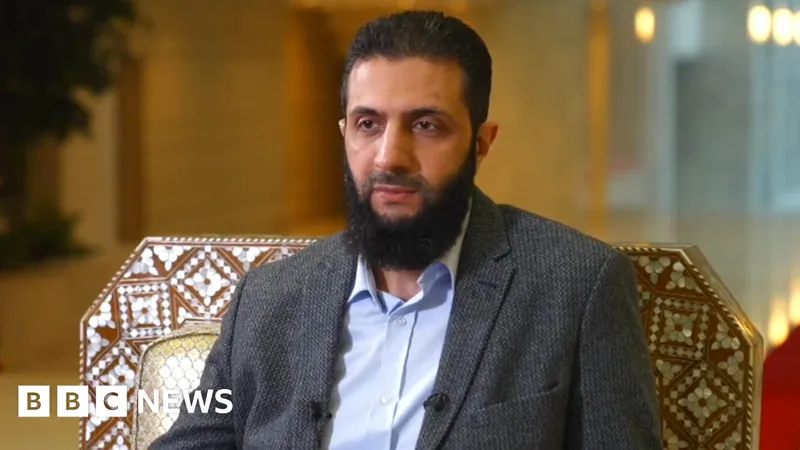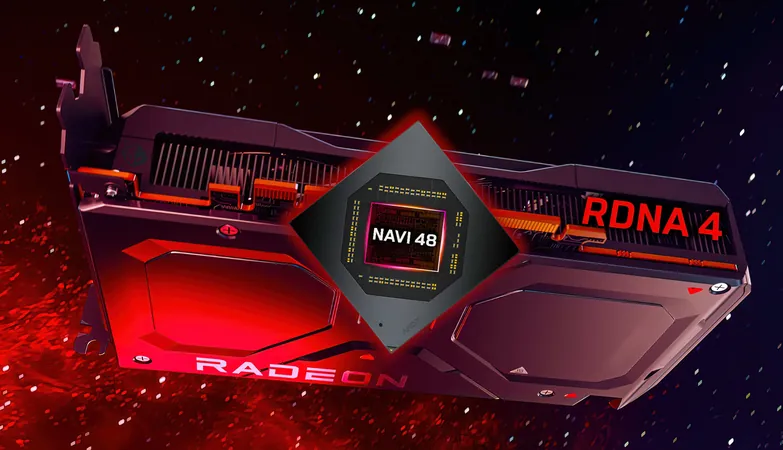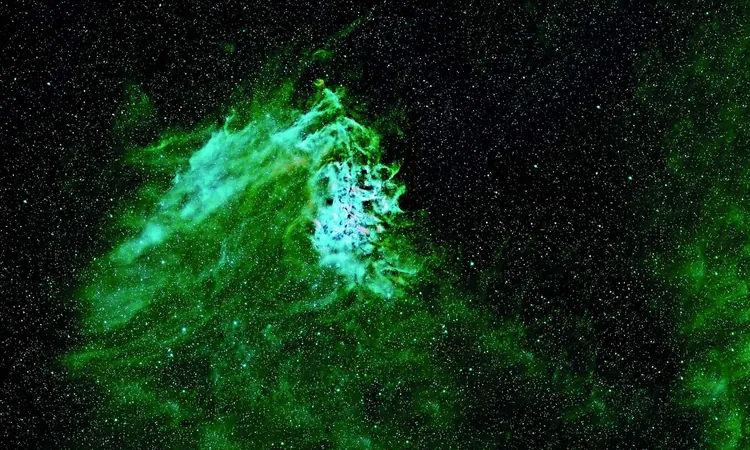
Syria's Future: HTS Leader Ahmed al-Sharaa Claims No Threat to Global Peace!
2024-12-18
Author: Ming
Introduction
In a groundbreaking interview with the BBC from Damascus, Ahmed al-Sharaa, the newly established leader of Syria and head of the Hayat Tahrir al-Sham (HTS), emphasized that his war-ravaged nation poses no threat to neighboring countries or the Western world. He stated, "Syria is exhausted by war," making a compelling case for the lifting of international sanctions that have greatly impacted its struggling economy.
Sanctions and Victims
Sharaa articulated his position by asserting that recent sanctions were directed at the prior regime, advocating for a distinction between the victims of conflict and their oppressors. "The victim and the oppressor should not be treated in the same way," he reiterated, calling for a more nuanced approach to foreign policy concerning Syria.
HTS and International Designation
Fresh off a tumultuous military campaign that toppled President Bashar al-Assad's regime just weeks ago, Sharaa asserted that HTS should be removed from the list of designated terrorist organizations. This designation, a legacy from when HTS emerged as a splinter faction of al-Qaeda, is still recognized by prominent bodies such as the UN, EU, the US, and the UK. Sharaa firmly stated, "HTS is not a terrorist group," pointing out that they do not target civilians and see themselves as victims in the broader scheme of Assad's oppressive governance.
Cultural Differences and Concerns
Addressing concerns that Syria might replicate the chaotic situation seen in Afghanistan, he highlighted the significant cultural and societal differences between the two countries. "Afghanistan is a tribal society, whereas Syria has its own unique mindset and traditions," he explained.
Commitment to Women's Education
In a surprising twist to his portrayal of HTS, Sharaa showcased an unexpected commitment to women’s education, proclaiming, "We've had universities in Idlib for more than eight years," where reports indicate female enrollment surpasses 60%. This development marks a notable shift for a region that has faced relentless conflict.
Legal Issues and Future Governance
When probed about controversial issues such as alcohol consumption, Sharaa remained cautious. "There are many things I just don't have the right to talk about because they are legal issues," he noted, hinting at the formation of a "Syrian committee of legal experts" dedicated to drafting a new constitution—a symbolic gesture towards a more structured governance.
Conclusion
Throughout the interview, Sharaa's calm demeanor and civilian attire portrayed an image of reassurance to those who question whether HTS has indeed moved beyond its extremist origins. However, skepticism remains rife among the Syrian populace, many of whom doubt his reassurances.
The upcoming months will be a critical juncture for the new leadership in Syria. Actions taken by Sharaa and HTS will reveal whether they are committed to establishing a stable, democratic state or if they will revert to past patterns of authoritarianism and violence. The world watches closely as Syria stands at a crossroads, its future hanging in the balance. Will it be a beacon of hope in the region, or will it succumb to the shadows of its tumultuous history? Only time will tell!


 Brasil (PT)
Brasil (PT)
 Canada (EN)
Canada (EN)
 Chile (ES)
Chile (ES)
 España (ES)
España (ES)
 France (FR)
France (FR)
 Hong Kong (EN)
Hong Kong (EN)
 Italia (IT)
Italia (IT)
 日本 (JA)
日本 (JA)
 Magyarország (HU)
Magyarország (HU)
 Norge (NO)
Norge (NO)
 Polska (PL)
Polska (PL)
 Schweiz (DE)
Schweiz (DE)
 Singapore (EN)
Singapore (EN)
 Sverige (SV)
Sverige (SV)
 Suomi (FI)
Suomi (FI)
 Türkiye (TR)
Türkiye (TR)